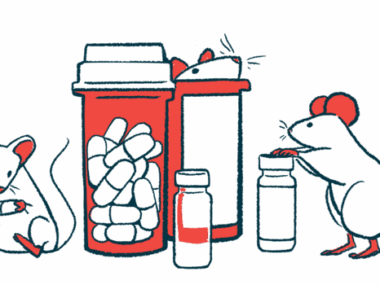Orphan Drug Status Sought for Ketamine as Potential ALS Therapy
Written by |

PharmaTher has filed an application with the U.S. Food and Drug Administration (FDA) requesting that ketamine be designated an orphan drug as a potential treatment of amyotrophic lateral sclerosis (ALS).
Orphan drug status is granted by the FDA to encourage the development of therapies for conditions that affect fewer than 200,000 people in the U.S. Its benefits and incentives include assistance in clinical trial design, tax credits, fee waivers, and seven years of marketing exclusivity should it be given regulatory approval.
PharmaTher recently entered into an exclusive license agreement with the University of Kansas to develop and possible market ketamine, approved as a dissociative [psychedelic] anesthetic and for treatment-resistant depression, to also treat ALS. It is planning to possibly open a Phase 2 clinical trial investigating ketamine as an ALS therapy later this year.
“Ketamine has tremendous potential for not only mental illness and pain disorders but also for neurodegenerative diseases such as ALS,” Fabio Chianelli, CEO of PharmaTher, said in a press release.
“Our FDA orphan drug application for ketamine to treat this life-threatening disease complements our patent portfolio that aims to protect the proposed method of use and dosage claims of ketamine for ALS,” Chianelli added. “[O]ur intention to seek orphan drug designation is to leverage the expedited regulatory and clinical development incentives offered by the FDA for repurposed drugs in treating rare diseases.”
While ketamine is primarily used as an anesthetic, work by researchers at the University of Kansas suggest that it could also be an effective treatment for ALS.
Their preclinical investigations have shown that ketamine preserves muscle function, potentially increasing life expectancy when administered in the early stages of muscle decline, the company reported.
In ALS patients, high levels of the chemical messenger glutamate in the brain and spinal cord produce an overwhelming activation of nerve cells that is toxic. Activation of these nerve cells by glutamate partially occurs through the N-methyl-D-aspartate (NMDA) receptors. Ketamine indirectly blocks these receptors to potentially inhibit glutamate toxicity.
ALS patients also have high D-serine and low dopamine levels. Ketamine can decrease D-serine concentrations and partly activate dopamine receptors.
Overall, these mechanisms contribute to ketamine’s neuroprotective effects, which could improve function in the damaged motor neurons in ALS, PharmaTher stated.
To date, three medications are approved by the FDA to treat ALS, and each has marginal effects in slowing the disease course and aiding patient survival, the company noted. Therefore, there is a pressing need for the development of more effective therapies for ALS.
PharmaTher is also planning to investigate ketamine as a treatment for Parkinson’s disease should it be cleared by the FDA for clinical testing.
“We are working with our clinical and regulatory advisors in preparing our clinical development plan and study protocol … to proceed with a potential phase 2 clinical study in ALS patients this year,” Chianelli said.





